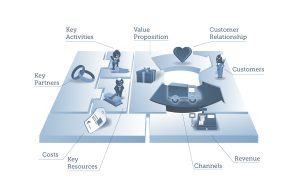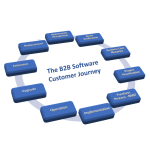Channel Partner Recruitment in the Software Industry – 1
 The word “channel” is traditionally used in the software industry to describe independent companies that assume various roles and obligations in bringing a software product to the customers. The definition is rather broad, since the roles and obligations can vary substantially from “simple” reselling to system integration, solution development on top of the software, implementation in terms of consulting, project management, customization, training and support.
The word “channel” is traditionally used in the software industry to describe independent companies that assume various roles and obligations in bringing a software product to the customers. The definition is rather broad, since the roles and obligations can vary substantially from “simple” reselling to system integration, solution development on top of the software, implementation in terms of consulting, project management, customization, training and support.
This definition collides somewhat with the contemporary business model framework definitions[1]. In the business model context “the channel” is the way you get new customers irrespective of who operates the channel. The role of the channel is to get your brand to the customers[2]. Thus, a company can operate the channel directly with his own resources or he can assign independent companies to operate some or all of the activities in his value chain[3].
This post deals exclusively with the process of recruiting independent channel business partners, which operate in their own name and at their own risk and cost. It is also assumed that these channel partners are supposed to find, win, make, keep and grow happy customers for the software vendor’s product(s).
The challenge of the indirect channel approach
Using a channel of independent companies to resell, implement and/or service your customers has a long tradition in the history of the software industry. For some software companies the channel has been a major contributor to global success, but for most software companies making it work is a constant struggle.
When software vendors have been successful in selling their products directly to customers, why do they then fail to repeat this success through a channel of independent business partners?
The failure of an indirect channel can normally be traced back to the lack of quality in the channel recruitment activities and in the elements of the channel program of the software vendor. We hope this series of posts will help software companies avoid such mistakes.
The difference in value propositions
In our posts on “The Software Partner Channel and the Customer Value Propositions” we explain how the value proposition of a software vendor differs completely from those of his channel business partners. We also explain the impact of this difference on the way business partners think, operate and the skill sets they possess.
Channel business partners do not think and act like Independent Software Vendors!!
To be successful with an indirect channel of business partners the software vendor must understand the idiosyncrasies of his partners. The software vendor must design his products, strategies and programs so they are aligned with business partner thinking.
Please check out my book Building Successful Partner Channels
Business Model illustration curtesy of the Business Model Foundry GmbH








